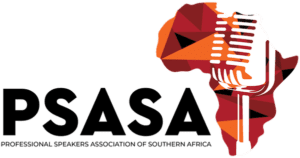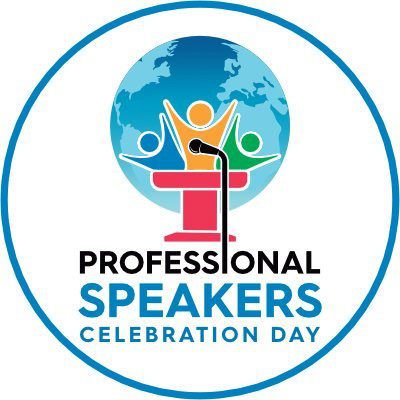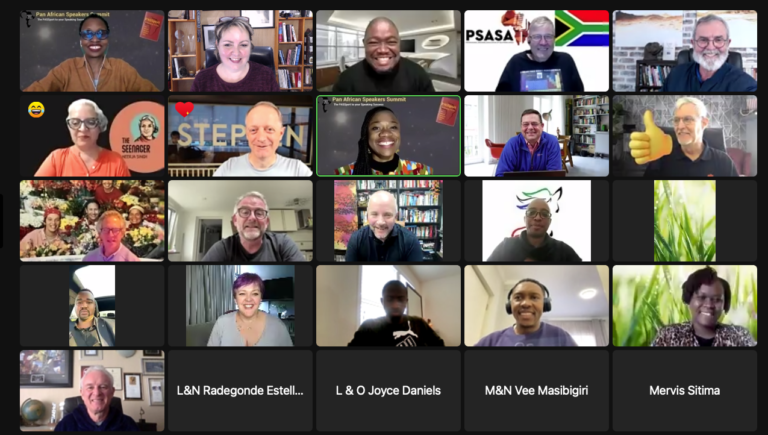Considering the impact of professional speakers in a turbulent world
The life-changing benefits of public speaking are well-documented when it comes to individual growth and career progress. But what about…the good of humankind?
American poet Ralph Waldo Emerson said: “Speech is power: speech is to persuade, to convert, to compel.” There’s little doubt that Mahatma Gandhi, Martin Luther King, Malala Yousafzai, Greta Thunberg and a slew of similarly high-profile speakers have changed the world with their exceptional content and delivery.
But, to what extent can speaking on big stages or virtual platforms – by civilian professionals – effect positive change in a world of chaos and turbulence?
Real people resonate
Professional speakers and stage talks can be deeply inspiring when it comes to helping people to see things in a new way and feel compelled to take action. Presenters can speak, credibly, to the fears, hopes and aspirations of their audiences in ways that resonate and make them feel seen. In a post-pandemic world where people feel increasingly isolated, this type of connection is critical.
‘Normal people’ can also, as a function of public platforms, become leaders.
Consider Malala Yousafzai, whose speech at the United Nations in 2013 was a powerful catalyst for the world to fight for education for girls. Her first audience was a Peshawar press club, where 11-year-old Malala protested school closings and gave her first address, “How Dare the Taliban Take Away My Basic Right to Education?”
Greta Thunberg’s positions on climate change have sparked a global movement and inspired young people worldwide. She gained global recognition at age 15, when she started spending Fridays outside the Swedish Parliament to call for stronger action on climate change. Greta’s sign, Skolstrejk för klimatet, was an unmistakeable reprimand of world leaders for their failure to address the climate crisis.
Technology amplifies
Technological advancements during and since the COVID-19 pandemic have enabled many professional speakers to reach new, diverse and even remote audiences.
Yes, they had to adapt rapidly (and in many instances, without knowing what they were doing) to a changed landscape. But they learned to engage their audiences in fresh ways and were able to deliver talks to entirely new listeners and viewers.
In addition to the more obvious technologies, like Zoom, webinar streaming platforms and podcasts, professional speakers have been able to participate in virtual conferences, summits and events, which yields opportunities to connect with unusual publics and to expose them to traditionally under-exposed messaging.
Pro competencies matter
When civilian professionals – that is, those who are trained in professional speaking but who are not celebrities in the traditional sense – take to a stage, they can’t rely on fame (or infamy, in some cases), massive media buzz, or the credibility that tends to accompany obscene wealth in a money-driven world. So they must bring their own ammunition, in the form of finely honed speaking competencies.
For the members of the Professional Speakers Association of Southern Africa (PSASA), a body that heroes the skills, knowledge, and experience of professional speakers, coaches, trainers and facilitators from South Africa, Namibia, Botswana, Zimbabwe and Kenya, these competencies span the following:
1. developing a niche,
2. defining positioning,
3. creating talk structures,
4. building businesses,
5. closing deals,
6. crafting personal influence,
7. enhancing vocal skills,
8. polishing stagecraft,
9. increasing audience engagement and
10. leveraging technology.
A day of celebration
In honour of the inspiring work carried out by professional speakers across the globe, the 17 member organisations of the Global Speakers Federation (GSF), including the PSASA, will shortly mark Professional Speakers Celebration Day.
This international day of celebration will take place on 14 March 2023 – known as “Pi Day” because of its 3.14 numerical representation. And the connection between pi and professional speakers? Cavett Robert, co-founder of the National Speakers Association, saw it clearly, saying: “Don’t worry about how we divide up the pie. There is enough for everybody. Let’s just make a bigger pie!”
This sentiment, and the Professional Speakers Celebration Day, bodes well for those living and working in a rapidly changing world because it says, loudly, that the speaking profession is strong and growing. Perhaps more importantly, it indicates that there is enough ‘stage space’, if you will, for speaking talent of all types. And, as human beings continue to navigate the swirling eddies of modern life, the value of professional speakers of all types will become more and more obvious.
Still, the fact remains that doing is as important as speaking. Southern Africa’s professional speaking industry is small compared to that of the Global North (where the speaking market is expected to reach $9.6 billion by 2025, according to Grand View Research) but there are significant opportunities for meaningful growth, development and impact in the region – and speakers committed to seizing them.
Written by:
Tiffany Markman
Professional Member, PSASA
Speaker, Trainer, Writer







